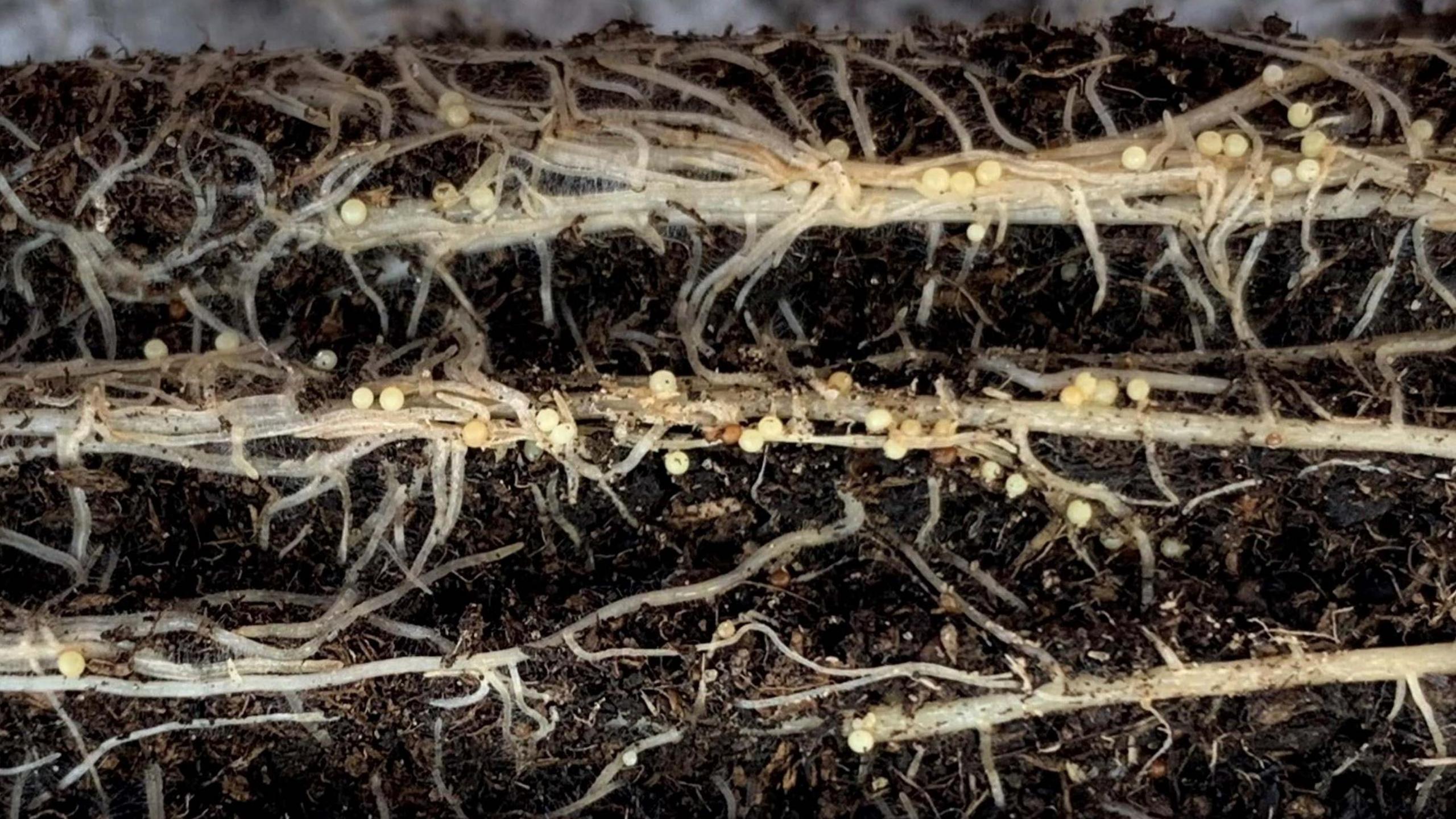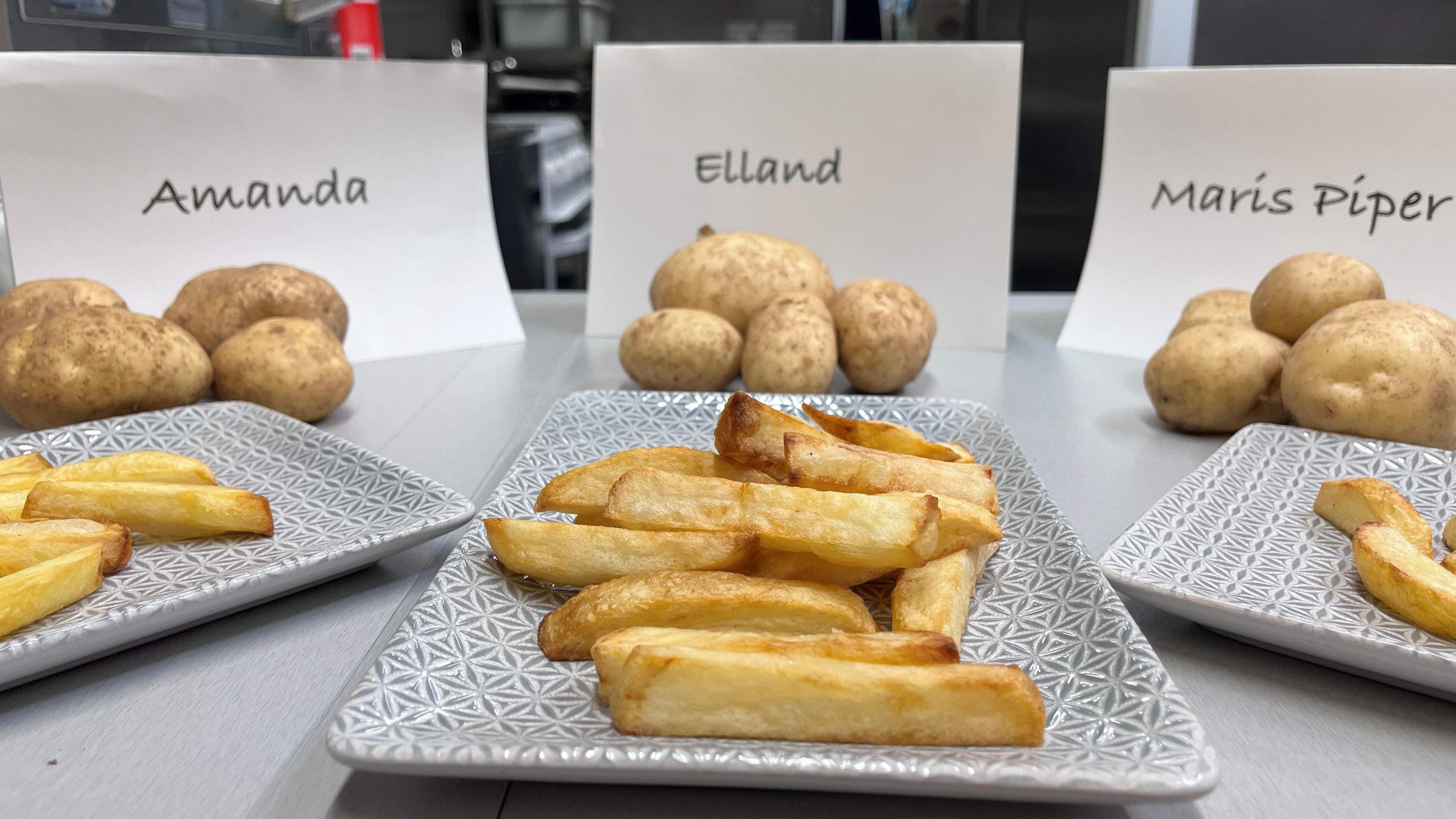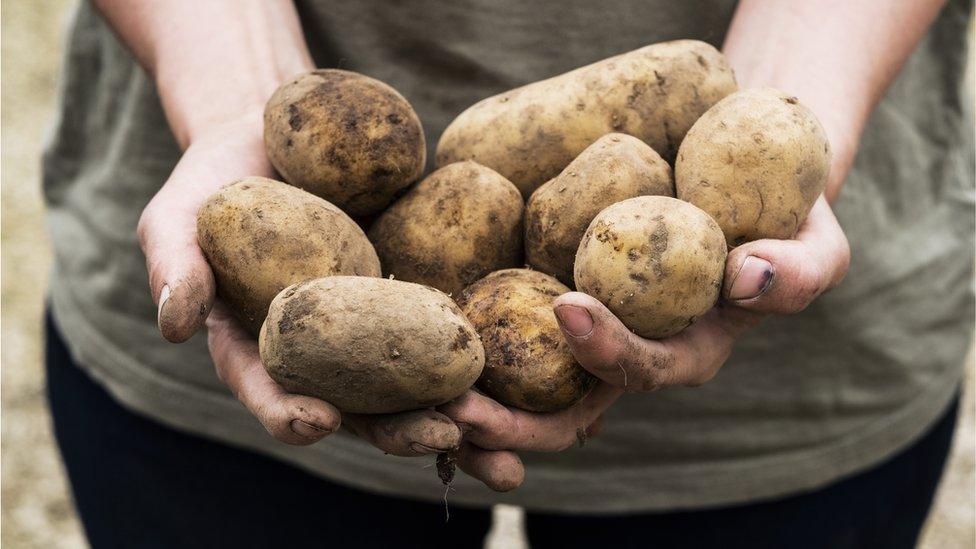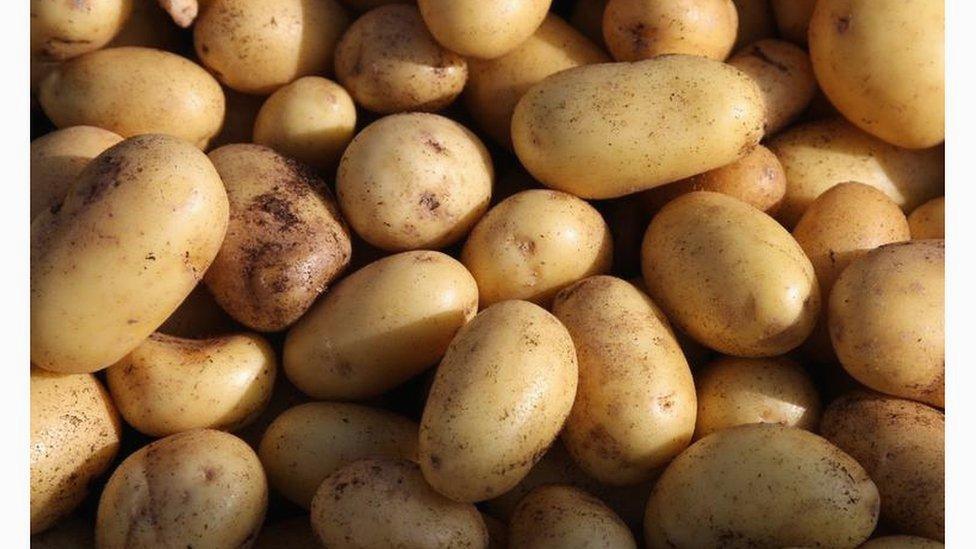Could 'super potatoes' save the tattie industry?

Molecular plant pathologist James Price has been field testing varieties against potato cyst nematodes
- Published
Scientists have made a major breakthrough which could save the Scottish potato industry from collapse.
A pest called potato cyst nematodes (PCN) has been steadily infecting fields and rendering them useless for growing seed potatoes.
A team from the James Hutton Institute has been testing varieties which are resistant to PCN while retaining their taste.
They have discovered several varieties and have been working with supermarkets to make sure they can replace potatoes which are more vulnerable.

The tiny nematodes attach themselves to the root of the potato plant
James Price, a molecular plant pathologist at the Institute, says the potatoes "have every possibility to save the industry."
"Having resistance to both species of the potato cyst nematodes that we see in Scotland and the UK, they'll be able to keep the numbers reduced in the soil," he said.
"This means that seed could be returned to these lands when PCN aren't detectable in the soil any more."
Scientists had been predicting that PCN would wipe out Scotland’s seed potato industry by 2050.
Seed potatoes are those which are grown to be sold to other farmers who then use them to grow "ware" potatoes.
Ware potatoes are the potatoes we buy for eating at home, in restaurants or as processed foods like chips and crisps.

The alternative varieties have to be as popular as Maris Pipers among consumers
The sector is worth £4.5bn to the economy with almost 80% of Britain’s seed potatoes coming from Scotland.
Those seeds are needed for the UK’s food security with potatoes being a huge staple of the British diet.
Dr Kerry Leslie, a potato specialist at SAC Consulting, believes there is little difference in the taste of the resistant varieties compared with favourites such as the Maris Piper.
She said taste was key for retailers to get on board.
"As long as these varieties aren't majorly different in terms of taste and texture, they should be fine to get taken up by the supermarkets," she said.
To slow the spread, fields with even low levels of PCN can no longer grow seed potatoes until they have been shown to be clear for a number of years.
An action network was set up in 2021 to see if alternative varieties could be found which are resistant to PCN.
Field trials have been under way to identify the ones which can be sold as “white potatoes” in supermarkets.
Related topics
- Published20 October 2022

- Published12 November 2019
